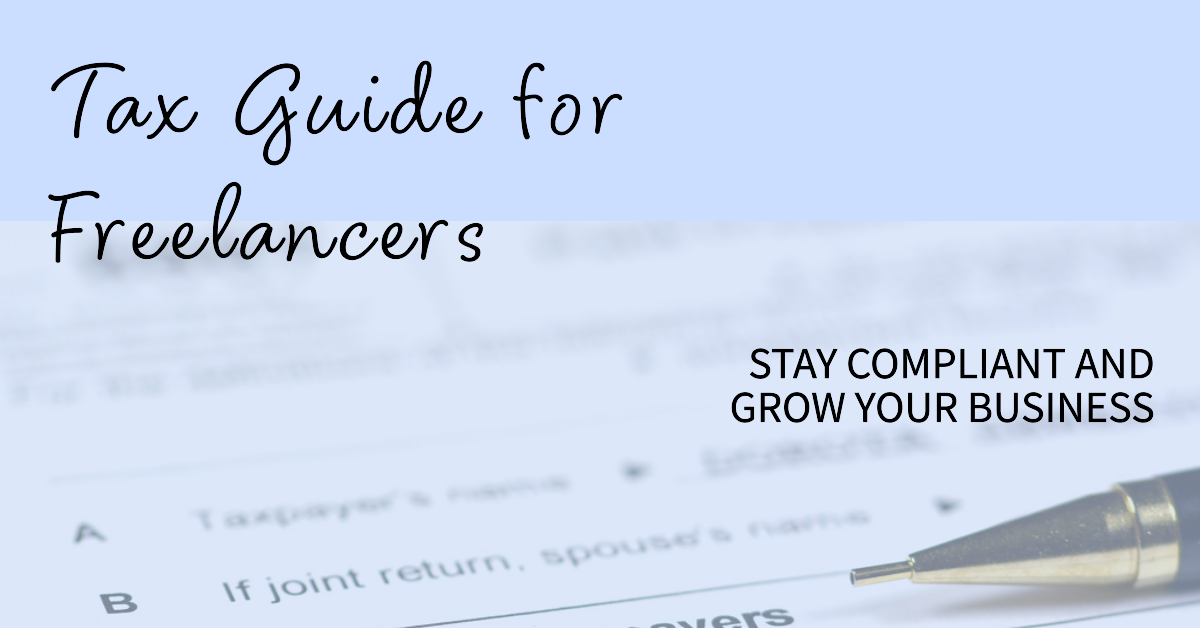Picture this: you’re a freelancer or self-employed individual in London, Ontario with a startup plan, hustling to make a living on your own terms. The freedom and flexibility of working for yourself are exhilarating, but there’s one aspect that can be overwhelming – tax obligations. Understanding the ins and outs of the tax system is crucial to avoid getting buried under a mountain of tax debt and potential legal issues. By being aware of your tax obligations and seeking guidance from a professional accountant when needed, you can ensure smooth sailing in your business journey without any unexpected surprises or penalties. These tips for London entrepreneurs will help you avoid mistakes.
Understanding Industry Codes for Tax Purposes
Industry codes play a crucial role in Ontario. Let’s dive into why these codes are important and how they impact your tax bill.
1. Explanation of Industry Codes and Their Significance
Industry codes are numerical or alphabetical designations that categorize different types of businesses or professions based on their main activities. These codes help the government understand the nature of your business and determine which tax rules apply to you. They are used to classify businesses for statistical purposes, as well as for taxation.
2. Importance of Selecting the Correct Industry Code
Selecting the correct industry code is vital when filing your taxes as a freelancer or self-employed individual. Choosing the wrong code can result in inaccurate reporting, potentially leading to penalties or missed deductions. It’s essential to accurately identify your business activities and select the corresponding industry code to ensure compliance with tax regulations.
3. Impact on Deductions and Tax Benefits
The industry code you choose can have a direct impact on deductions and eligibility for certain tax benefits. Different industries may have specific rules regarding deductible expenses, allowances, or credits available. By selecting the correct code, you maximize your chances of claiming all eligible deductions and benefits, ultimately reducing your taxable income.
4. Keeping Accurate Records
To ensure accurate reporting under the appropriate industry code, it is crucial for London businesses to use the right accounting software. This software allows them to keep detailed records of all business transactions, including income receipts and expenses. This documentation will support any claims made during tax filing and help maintain compliance with tax regulations.
Tax Year: April to April and Implications
1. Explanation of the April to April tax year cycle in Canada and its implications for freelancers and self-employed individuals in London, Ontario
In Canada, the tax year runs from April to April. This means thatOntario, you need to consider the dates between these two months. Understanding the importance of bookkeeping in London Ontario is crucial for fulfilling your tax obligations properly during this tax year cycle.
2. The importance of keeping accurate records throughout the tax year to ensure a smooth filing process
Keeping accurate records throughout the tax year is crucial for freelancers and self-employed individuals in London, Ontario. Finding the right accounting software can greatly assist in this process. By maintaining organized records of your income and expenses, you can easily track your financial transactions and determine what deductions you may be eligible for. This will make the filing process much smoother when it’s time to submit your tax returns.
3. How understanding the tax year cycle can help freelancers plan their finances effectively
Understanding the tax year cycle can greatly assist freelancers in planning their finances effectively, especially when using accounting software for London businesses and consulting with a small business accountant in London. By knowing that taxes are due after April of each year, you can set aside funds throughout the year specifically for your tax obligations. This way, you won’t be caught off guard when it’s time to pay your taxes or risk facing penalties for late payments.
By staying on top of your financial responsibilities and being proactive about saving money for taxes, you’ll be able to navigate through the tax season with ease. Planning ahead will also allow you to take advantage of any potential tax benefits or opportunities for a refund that may arise during this period.
Self-Employment Taxes for Freelancers Abroad
Filing taxes as a freelancer abroad while residing in London, Ontario can come with additional considerations and potential complexities. It’s crucial to consult with a professional accountant who is familiar with international taxation laws to ensure you meet all your tax obligations correctly.
1. Additional Considerations for Freelancers Abroad
When you work as a freelancer abroad, there are a few important factors to keep in mind for London entrepreneurs.
- Double Taxation Treaties: Depending on the country you’re working in, there may be a double taxation treaty in place between Canada and that country. These treaties aim to prevent individuals from being taxed twice on the same income. It’s essential to understand how these treaties affect your tax liability and whether you can claim any credits or exemptions.
- Foreign Income Reporting: As a freelancer earning income abroad, you must report this foreign income on your Canadian tax return. This includes any self-employment income earned outside of Canada. Be sure to keep detailed records of your earnings and expenses related to your freelance work.
- Applicable Taxes: Different countries have varying tax systems, rates, and thresholds for self-employed individuals. It’s crucial to understand the local tax laws and determine if you need to pay any taxes in the country where you’re freelancing.
2. The Importance of Professional Guidance
Navigating international taxation can be complex, which is why it’s highly recommended to seek guidance from an accountant experienced in dealing with freelancers working abroad. They will help ensure that you comply with both Canadian and foreign tax regulations while maximizing deductions and credits available to you.
By consulting with a small business accountant in London, you’ll gain peace of mind knowing that your taxes are filed accurately and efficiently while minimizing the risk of penalties or audits. Avoid the mistake of not seeking professional help for your business finances.
Remember: each individual’s situation is unique, so it’s best not to rely solely on general information found online. Seek personalized advice from a hire accountant in London to ensure you meet all your tax obligations correctly. Bookkeeping in London Ontario is of utmost importance.
Maximizing Deductibles: Expenses and Home Office
3. Deductible Expenses for Freelancers
As a freelancer or self-employed individual in London, Ontario, it’s crucial to understand the deductible expenses you can claim on your taxes. These are business expenses, including deductions for London, that you can subtract from your total income, reducing the amount of tax you owe.
Keeping detailed records is essential to support your deductible expenses. This means holding onto invoices, receipts, and any other proof of relevant expenses. By doing so, you have solid evidence to back up your claims if the Canada Revenue Agency (CRA) asks for verification.
4. Tips for Maximizing Home Office Deductions
If you work from home as a freelancer or self-employed professional in London Ontario, you may be eligible for tax deductions for businesses in London Ontario related to your home office. Here are some tax tips for businesses in London Ontario that can help you maximize your deductions. Additionally, if you are a resident of London Ontario, you can also find personal tax guidance specific to your situation. Here are some personal tax guidance tips for residents in London, Ontario to help you maximize deductions.
- Determine Eligible Home Office Expenses: Identify which expenses are eligible for deduction. These may include a portion of your housing costs (such as rent or mortgage interest), utilities (like electricity and internet), and even office supplies.
- Calculate Your Home Office Space: Measure the square footage of your dedicated workspace within your home. This will allow you to determine what percentage of certain expenses in your startup plan can be allocated as business-related.
- Keep Track of Relevant Expenses: Maintain a record of all relevant home office expenses throughout the year. This includes keeping copies of invoices, receipts, and bills that pertain specifically to your workspace.
- Understand Thresholds: Be aware that there are certain thresholds and limitations. Ensure that you meet the criteria set by the CRA before including these deductions in your tax return.
By following these tips and staying organized with your records, you can maximize the deductions available for both general business expenses and home office-related costs as a corporate tax accountant in London.
Combining Freelance Work with Paid Employment
1. Impact on Taxes
When you’re juggling both freelance work and a regular job, it can have an impact on your tax obligations. You need to understand how the income from your freelance work is reported differently than your regular employment income.
2. Reporting Freelance Income
Unlike income from a regular job, which is reported through a T4 slip, freelance income needs to be reported separately. As a freelancer, you are considered self-employed, which means you’ll need to keep track of your earnings and expenses throughout the year for tax purposes.
Tips for Effective Tax Management
To effectively manage your taxes when combining freelance work with paid employment, here are some tips:
- Keep Detailed Records: Maintain accurate records of all your freelance income and expenses. This will help you calculate your taxable income correctly and claim any eligible deductions.
- Set Aside Money for Taxes: Remember that as a freelancer, you’re responsible for paying both the employer and employee portions of certain taxes. Set aside a portion of your freelance earnings throughout the year to cover these tax obligations.
- Consult with an Accountant: If you’re unsure about how to navigate the complexities of filing taxes as a freelancer with paid employment, consider seeking advice from an accountant who specializes in self-employment taxes.
- Understand Deductible Expenses: Familiarize yourself with deductible expenses specific to freelancers, such as home office expenses, professional development courses or workshops related to your freelance business, and equipment or supplies necessary for your work.
By following these tips and staying organized throughout the year, you can effectively manage your tax obligations when combining freelance work with paid employment.
Navigating Freelancer Taxes in London, Ontario
Congratulations! You’ve made it through the essential sections on freelancer taxes in London, Ontario. Now that you understand industry codes for tax purposes and the implications of the April to April tax year, you’re well-equipped to tackle your self-employment taxes as a freelancer. Remember, being aware of how your freelance work intersects with paid employment can help you optimize your tax situation.
To make the most of your deductions for bookkeeping in London Ontario, don’t forget to explore expenses and home office deductibles with a corporate tax accountant in London. By keeping track of your eligible business expenses and ensuring your home office meets the requirements, you can maximize your deductions and potentially reduce your overall tax burden. And if you’re freelancing abroad while residing in London, Ontario, be sure to familiarize yourself with any additional self-employment taxes that may apply.
Now that you have a solid understanding of freelancer taxes in London, Ontario, it’s time to take action. Start by organizing your financial records and consulting with a qualified tax professional who can guide you through the specifics of your situation. When it comes to managing your finances and taxes, it’s important to hire an accountant who can provide expert advice and assistance. When it comes to managing your finances and taxes, it’s important to hire an accountant who can provide expert advice and assistance. They’ll help ensure compliance with all applicable tax laws while helping you leverage every deduction available to minimize your tax liability. Don’t hesitate—take control of your taxes today!


